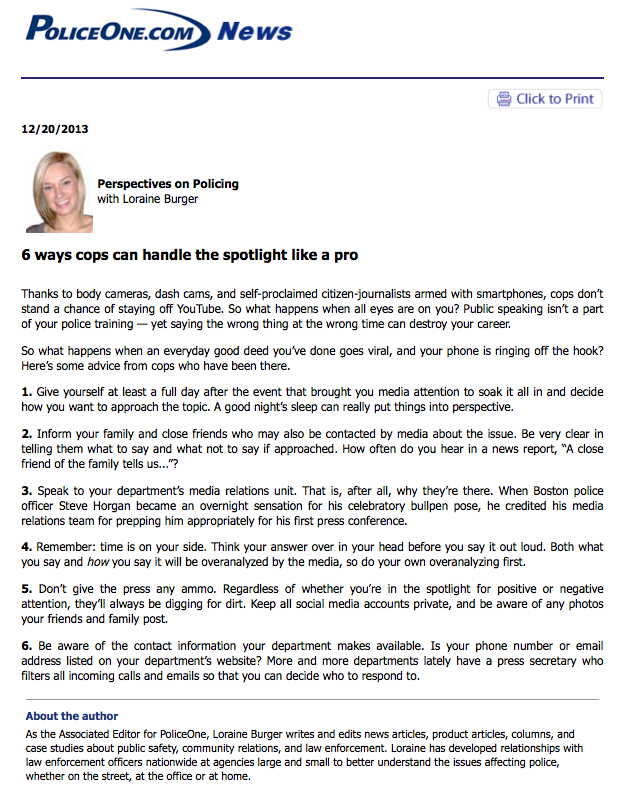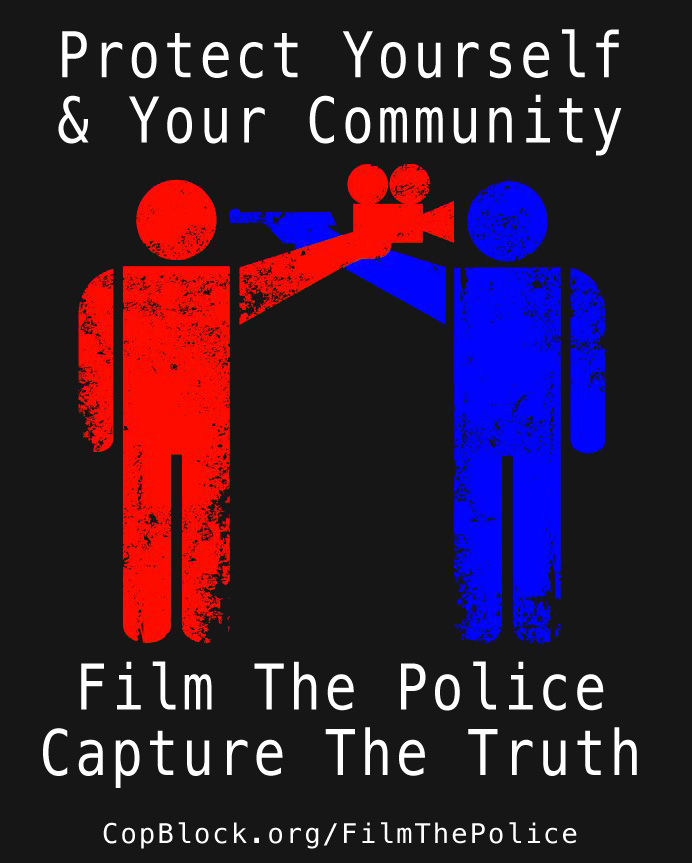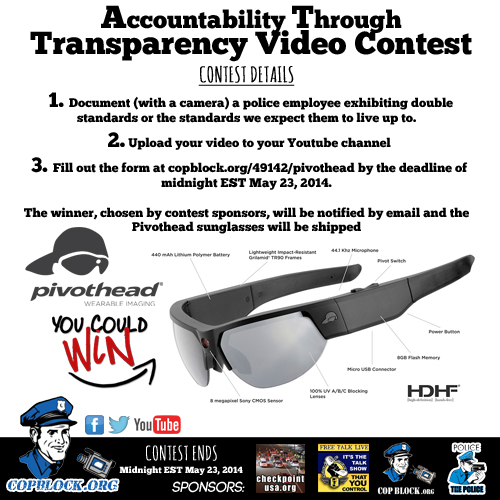By Pete Eyre
Don’t say anything that you’ll later regret and control access to information – that’s essentially what PoliceOne.com employee Loranie Burger, in her December of 2013 write-up 6 ways cops can handle the spotlight like a pro, suggests to police employees on how to best handle “self-proclaimed citizen-journalists armed with smartphones.”
Unfortunately for Burger and those who may find balm in the six steps outlined, the ability to control information is becoming a thing of yesteryear.
Many of us now carry smartphones, which can stream content offsite, safely from the clutches of those who have historically operated in the shadows – the true nature of their actions known only to themselves and their victims.
Thanks to the Internet, Tors, meshnets, inexpensive technology, hackers, and other tactics and tech which facilitate the spread of ideas, more are questioning the legitimacy of the injustice system.

But just because you recognize the value created when you or I or a random passerby films – the same is not true when the filming is done by a police employee, as issues then exist about accessing the footage, if it even exists.
Also, was pointed out by Jacob Crawford of We Copwatch and Rachel Lederman of the National Lawyers Guild, we cannot rely on police body worn cameras for a multitude of reasons. There’s a big difference between surveillance and sousveillance.
On Cop Block’s Film the Police page, it notes:
Documenting the actions of police employees can help protect you and others because it creates an objective record. You have the right to record anything in public – including, and some would say, especially – police employees. Though police employees are people just like you and me, courts have ruled that police can lie to you, and that they may not be held accountable for their actions per unfair legal doctrines and practice like ‘sovereign immunity’ and ‘acting under color of law.’Burger does share a nugget of truth in her piece: “cops don’t stand a chance of staying off YouTube.” As the practice of documenting and disseminating interactions with police employees, both as a safeguard and a deterrent, continues to become more commonplace, we’re all better off.
As we each film we are making visible the pattern that’s always existed – the institutionalized violence built into the injustice system – so that complacency is no longer thought acceptable and financial support can be withdrawn, before its actors wrong yet another individual.
Protect yourself and your community – keep your camera nearby, charged, and with space to capture content, and film the police!

On a related note, launched earlier this week with a deadline almost a month out, is the Accountability Through Transparency Video Contest:

